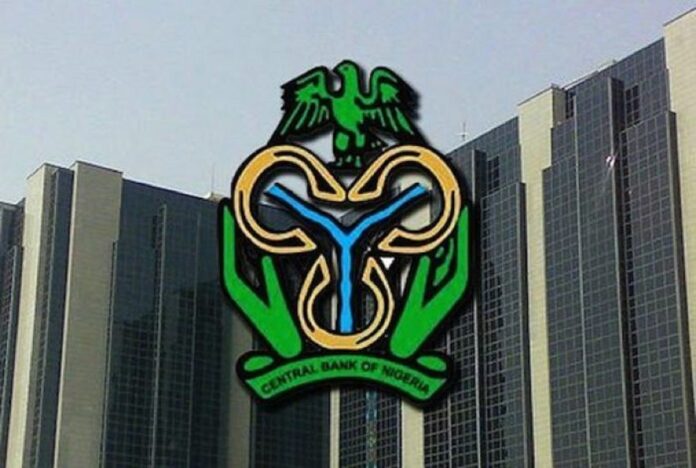Abuja, July 24, 2023: As the Monetary Policy Committee (MPC) of the Central Bank of Nigeria (CBN) prepares for its July meeting, some financial experts have called for moderation in its policy decisions.
The CBN has announced that the 292nd meeting of the MPC will hold on Monday and Tuesday, to be chaired by Mr Folashodun Shonubi, the Acting Governor of the CBN.
This will be the fourth MPC meeting of 2023, and the first in about nine years to be chaired by someone other than the suspended CBN Governor, Godwin Emefiele.
At the last MPC meeting in May, Emefiele had announced the committee’s decision to raise the Monetary Policy Rate (MPR) for a seventh consecutive time, from 18 per cent to 18.5 per cent.
That is the highest since the MPR was established in 2006.
The CBN started its monetary policy tightening in May 2022, when the MPR, which is the benchmark interest rate, was increased from 11.5 per cent to 13 per cent.
A financial expert, Prof Uche Uwaleke, told NAN that the decision of the MPC in the July meeting will be influenced by the rising inflation expectations due largely to the sudden removal of fuel subsidy.
Uwaleke, a Professor of Capital Market at the Nasarawa State University, Keffi, said that pressure on the naira and exchange rate volatility occasioned by the recent Naira float would also influence the MPC decision.
According to him, those considerations tend to recommend a further rates hike aimed at taming the stubborn inflation.
“The acting CBN governor, who will be chairing the meeting, has been part and parcel of the hawkish MPC stance for months now, and so another rates hike will not come as a surprise.
“Be that as it may, the MPC should equally recognise that the removal of fuel subsidy has slowed down economic activities considerably with attendant drop in productivity.
“So, economic growth and jobs are already negatively impacted such that a further monetary policy tightening would only worsen the situation.
“Cost of capital will further increase and access to credit by small businesses will become more difficult,” he said.
He said that a further increase in the MPR was also likely to endanger the asset quality of banks through an increase in non-performing loans as Deposit Money Banks (DMBs) repriced their loans.
“In this regard, the balance of risks dictates that the MPC should pause the policy rate hikes, which has been on since May last year by maintaining a hold position on all policy parameters.
“The MPC should recognise that much as its primary mandate is to maintain price stability, it equally has a responsibility to support output growth.
“This is against the backdrop of the fact that many of the factors driving inflation in Nigeria, such as insecurity affecting food output and high energy costs, are outside the control of the CBN,” he said.
Uwaleke urged the MPC to seize the opportunity of its forthcoming meeting to signal readiness to support output growth.
“This can be done through policies geared towards fostering a low interest rates environment while keeping an eye on inflation, using a mix of hererodox measures,” he said.
According to Mr Okechukwu Unegbu, a past President of the Chattered Institute of Bankers of Nigeria (CIBN), the MPC should lower the MPR to allow easy access to credit for the productive sector of the economy.
Unegbu said that since lending rate in banks is dependent on the MPR, lowering it would be more beneficial for economic growth by allowing easier access to funds for the manufacturing sector and for small businesses.
He, however, said that the idea of DMBs using the MPR to decide their lending rates should also apply to interest rates on savings.
“The banks use the MPR to increase their lending rates, but savings interest rates are always very low.
“Interest rates on savings should guide the banks on their lending rates. They are supposed to look at average interest rate on savings to consider their own lending rates.
“I expect the MPC to reduce the rates this time so that banks can reduce their lending rates in order to encourage lending to the productive sector of the economy,” he said.
Mr Yemi Kale, partner and Chief Economist at KPMG Nigeria, said that the MPC was facing a dicey meeting since the suspension of Emefiele.
According to Kale, economic growth is slow and fragile, and in need of liquidity.
“At the same, inflation rates are high and rising, and with the recent subsidy and FX reforms, inflation is almost definitely going to rise higher and all happening at a time confidence in its ability to control inflation is weak,” he said.
He said the inability of the CBN to control inflation had been largely due to the main drivers of inflation being structural and supply-based, which could not be controlled effectively with the money supply tools available to it.
He added that the recent growth in money supply following the various reforms would likely worsen inflation.
“Excess liquidity may also find its way into the FX market and put pressure on Naira, both at official and parallel markets.
“The MPC will therefore have a difficult decision on how to pull inflation down without hurting economic growth further, which further tightening might cause.
” However, I expect that the CBN will be more concerned about inflation being its core responsibility and will tighten the MPR further but release the Cash Reserve Ratio (CRR) to support the economy,” he said.




